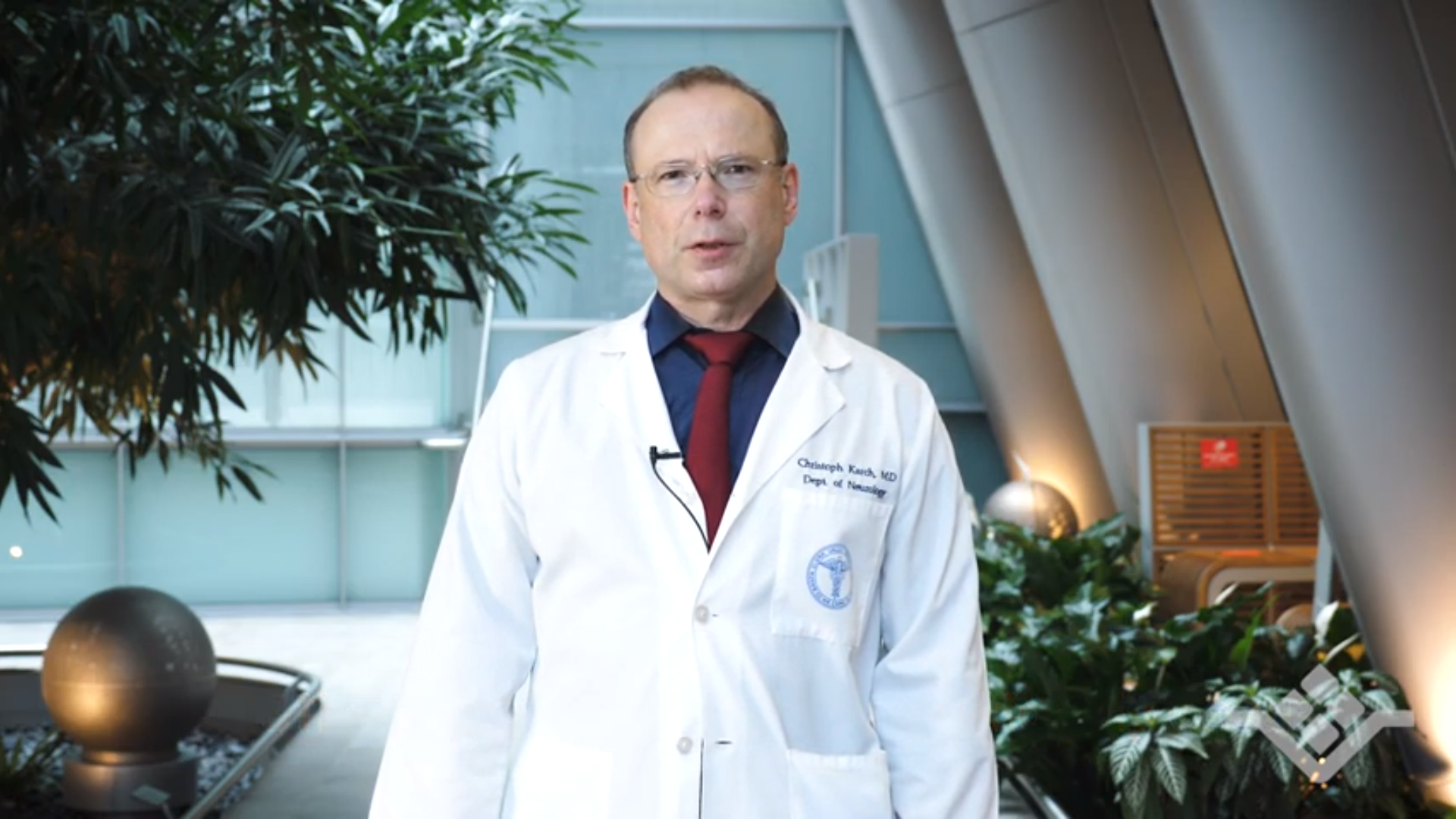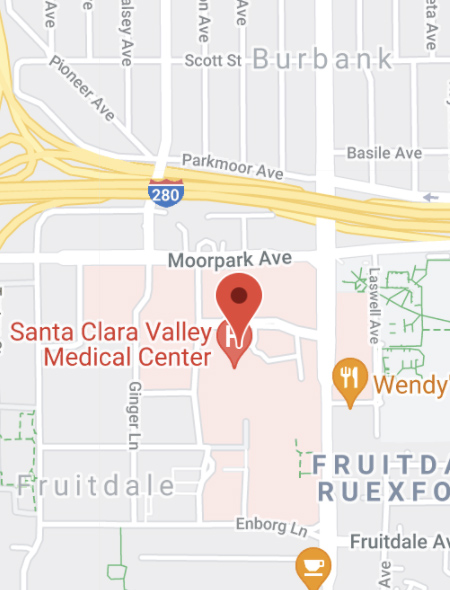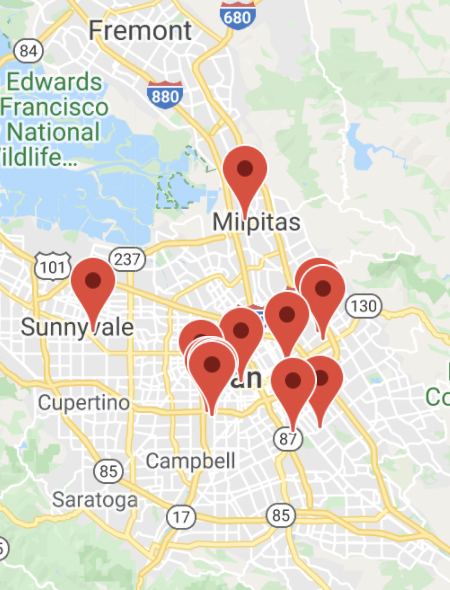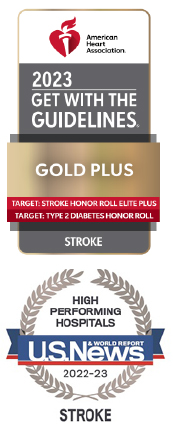Stroke Care
OVERVIEW
Santa Clara Valley Medical Center has proven expertise in caring for people who have had a stroke has earned us special advanced certification from The Joint Commission as a Primary Stroke Center since 2007.
The Stroke program at Santa Clara Valley Medical Center aims to create a high quality, evidence-based environment so that the specialized needs of our stoke patients may be addressed.
YOU WILL RECEIVE:
- Award-Winning Care:
- Santa Clara Valley Medical Hospital has received the American Heart Association’s Stroke SILVER PLUS Get With The Guidelines®-Stroke Achievement Award. This recognition supports that Santa Clara Valley Medical Hospital is meeting quality measures and applying the most up-to-date evidence-based treatment guidelines to improve patient care and outcomes in the community we serve.
- U.S. News & World Report, the global authority in hospital rankings and consumer advice, has named Santa Clara Valley Medical Hospital as a 2022-2023 High Performing hospital for Stroke. This is the highest award a hospital can earn for U.S. News’ Best Hospitals Procedures & Conditions ratings.
- Santa Clara Valley Medical Hospital has received the American Heart Association’s Stroke SILVER PLUS Get With The Guidelines®-Stroke Achievement Award. This recognition supports that Santa Clara Valley Medical Hospital is meeting quality measures and applying the most up-to-date evidence-based treatment guidelines to improve patient care and outcomes in the community we serve.
- Experienced Team of Experts:
- Neurologist
- Nurses
- Radiologist
- Neurosurgeons
- Vascular Surgeons
- Occupational Therapists
- Physical Therapists
- Physical Therapist Assistants
- Speech/Language Pathologist
- Case Managers and Social Workers
- Innovative diagnosis and treatment: Our special team provides rapid diagnosis and treatment for stroke patients, designated areas in the hospital with especially trained staff to care for patients who have experienced a stroke, and integrated services from several departments throughout our hospital.
STROKE DIAGNOSIS
Stroke is a medical emergency which requires rapid identification. Stroke recognition is key in the delivery of timed interventions available. You can recognize when someone is having a stroke by remembering the warning signs of stroke which include:
A simple way to remember the warning signs of a stroke is the acronym BEFAST.
Call 911 for SUDDEN onset of:
- BALANCE: Sudden loss of balance or difficulty walking.
- EYES: Sudden trouble seeing, double vision or vision change in one or both eyes
- FACE: Sudden facial droop, loss of movement, numbness or tingling on one side of the face
- ARM: Sudden weakness, numbness or tingling in one arm or leg
- SPEECH: Sudden difficulty speaking, slurred speech or confusion
- TERRIBLE HEADACHE: Sudden severe headache with no known cause
BEFAST - Signs and Symptoms of Stroke

*By clicking on the “Watch External Video” button, you will leave this website, enter a non-County of Santa Clara website, and be subject to the destination website’s privacy policy. Please see our Links Policy for more information.
A stroke occurs when circulation of blood and nutrients to the brain fails. There are two basic categories of stroke: ischemic stroke which is caused by a blockage of blood flow and hemorrhagic stroke which is caused by bleeding in or around the brain.
Some people have stroke symptoms that last only for a short time and then go away on their own. This is called a transient ischemic attack (TIA). A TIA is a sign that you have a serious medical problem, that is likely to progress to a stroke in the future. Anyone experiencing signs of a stroke or detect warning signs of a stroke in someone else, should call 9-1-1 immediately.
STROKE TREATMENT
Stroke is a medical emergency which also requires rapid evaluation, diagnostics, and treatment.
- Call 911 for rapid evaluation and transport to a stroke center immediately.
- Upon arrival to our hospital, you can expect our Stroke Care Team to:
- Review your medical history
- Perform a physical exam
- Order a computed tomography (CT) scan to differentiate between ischemic or hemorrhagic stroke as well as laboratory work
- Administer intravenous thrombolytic (a clot-busting) drug for a blockage of blood flow due to a blood clot in the brain.
CONTACT US
For information about our stroke care or support services, contact (408) 885-2874.
For information on our Stroke Support Group, contact (408) 885-2397.




